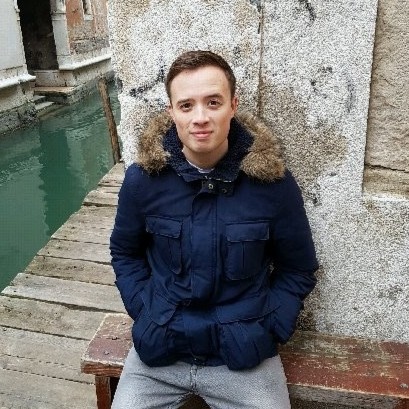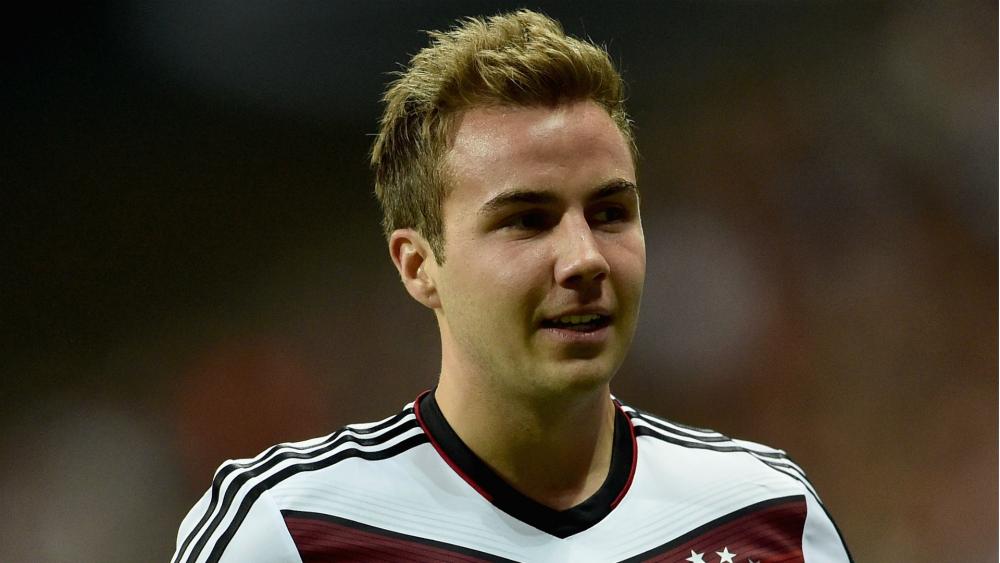FourFourTwo’s 50 Best Football Managers in the World 2016: 50-46
Kick-off! Two of South America’s most successful bosses of 2016 get the recognition they deserve, plus another trio who punched above their weight
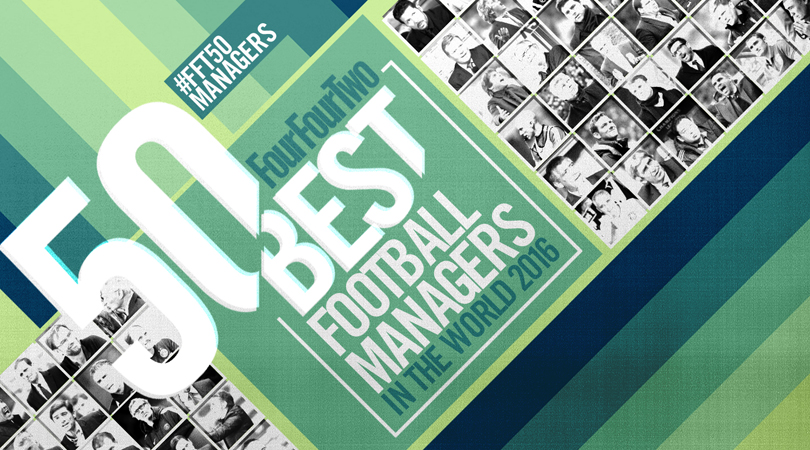
Words: Chris Flanagan, Marcus Alves, Martin Mazur, Michael Yokhin, Geoff Brown.
50. Chris Coleman (Wales)
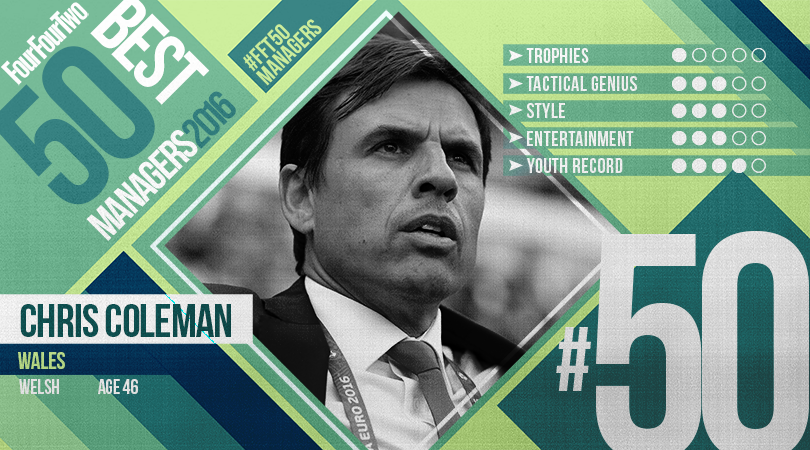
Oscar-winning actor Adrien Brody once joked that it took him 17-and-a-half years to become an overnight success. Chris Coleman will know the feeling.
The Wales boss first became a manager when he took charge of Fulham way back in 2003, but not until the brilliant success of Euro 2016 did he really announce himself to the rest of the continent as one of Europe’s most impressive managers.
He’s brilliant, he makes sure every box is ticked before going on the pitch. The biggest testament you can give to him is everyone loves playing for him - we give absolutely everything for him as manager
Things haven’t always gone well for Coleman in management. His second job at Real Sociedad lasted only six months: on one occasion he mysteriously turned up 90 minutes late for a press conference, telling journalists his washing machine had flooded his flat. The reality was that Coleman had been out on the town the night beforehand, and he was forced to apologise.
Then came a spell at Coventry and an ill-fated period in charge of Greek side Larissa, before he accepted the Wales job following the death of his friend Gary Speed. His managerial career looked in serious jeopardy when a 6-1 defeat in Serbia left him on the brink in 2012.
“I was trying to do everything that ‘Speeds’ was doing, because I was told it was working and don’t change it,” he admitted. “It didn’t work for me – it blew up in my face. I’ll never make that mistake again.”
Get FourFourTwo Newsletter
The best features, fun and footballing quizzes, straight to your inbox every week.
Coleman soon introduced his own tactics, switching to three at the back, and Wales flourished. The 46-year-old created a club spirit within the national team, conducting himself with a calm confidence that clearly spread to his players.
Just qualifying for their first tournament since 1958 was a huge achievement – reaching the semi finals was a virtual miracle. CF
49. Reinaldo Rueda (Atletico Nacional)
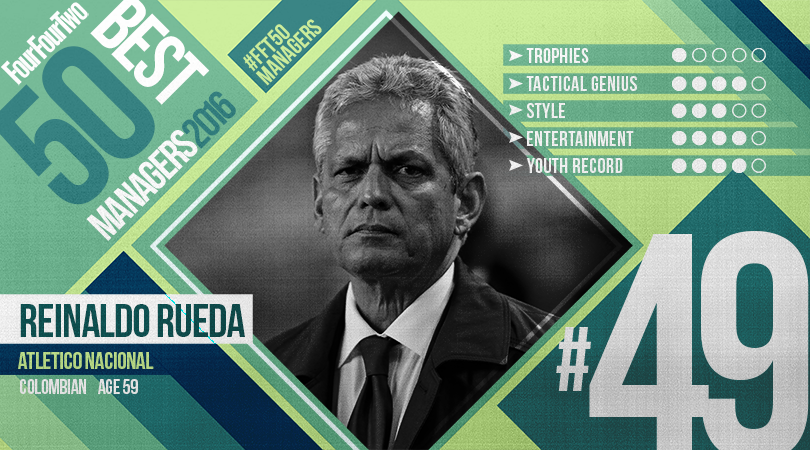
Never had a team beaten sides from Brazil, Argentina and Uruguay away from home in the same season in the Copa Libertadores. Atletico Nacional did on their way to the final in 2016 – and now they’re favourites to lift the trophy.
Some would say Colombia’s new starlet Marlos Moreno was decisive with his performance in the 2-0 win at Huracan in Buenos Aires. Or that goalkeeper Franco Armani stopped everything in the 4-0 victory over Penarol in Montevideo. Or that Sao Paulo’s defenders still can’t sleep after Miguel Borja’s goals at the Estadio do Morumbi.
The 'teacher' reads, speaks and eats football. He is a scholar of most of the opponents he will face, locking himself in his room and even preferring not to leave the hotel to review the smallest detail
Those people wouldn’t be wrong – but the man behind all of it is definitely Reinaldo Rueda.
The 59-year-old coach worked with national teams from 2004 to 2014 and led Honduras and Ecuador to the most recent World Cups. He still had to prove himself at club level, though – and did, in such an impressive way. Rueda has crafted an attack-minded side that – according to his own words – delivers a spectacle to fans as a top priority.
He may soon become a sexegenerian, but the 59-year-old is studying all the time and has worked as FIFA’s instructor in Colombia’s football national school. His dream is to coach in the Bundesliga one day – he speaks German after doing his masters degree in Cologne. MA
48. Pablo Repetto (Independiente del Valle)
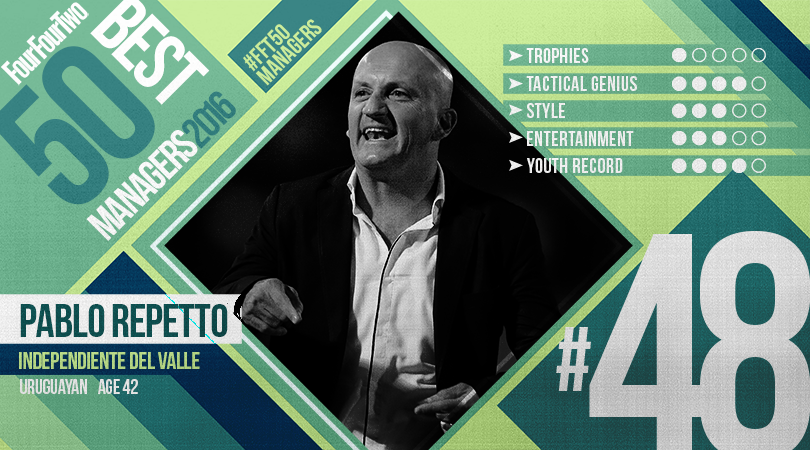
The Uruguayan is now a demigod in Ecuador: he was appointed in 2012 and led the small club, founded in 1958, to second place in Primera A for the first time.
But the real explosion came at international level, where Independiente competed for the first time in the Copa Sudamericana (2013, 2014) and Copa Libertadores (2014, 2015, 2016).
With a squad worth only £16m, Repetto’s Independiente have reached this year’s Libertadores final where they’re up against Rueda’s Atletico Nacional with a late 1-1 draw from the first leg. You could say they’ve proved themselves as South America’s answer to Leicester, becoming the first club to eliminate River and Boca (both away) in the same edition.
In the build-up there’s always a favourite, but it’s the better team that ends up being the champions. We’re not bigger than anyone, but we’re not smaller either. They said the Bombonera would get to us, but we played our usual game
Before, the 42-year-old had only managed small clubs in Uruguay. Now he’s one of the most respected managers on the continent and a study case for small clubs. “First comes my family, then my team. The more time I spend in a club, the more I feel family and team are the same thing,” he said.
Repetto channels 30% of the club’s budget to the academy and promotes the idea of solidarity, on and off the pitch: all wages are nearly the same, with a top earner of £6,000 a month. “We have a young squad that worries more for the sporting front rather than the economic one. Even with all the disadvantages we might have compared to other big clubs, we have faith and trust in ourselves. And I’m from Uruguay so I like the idea of pulling a football deed when everybody writes you off. That’s the fuel to keep going.” MM
47. Janne Andersson (Sweden)
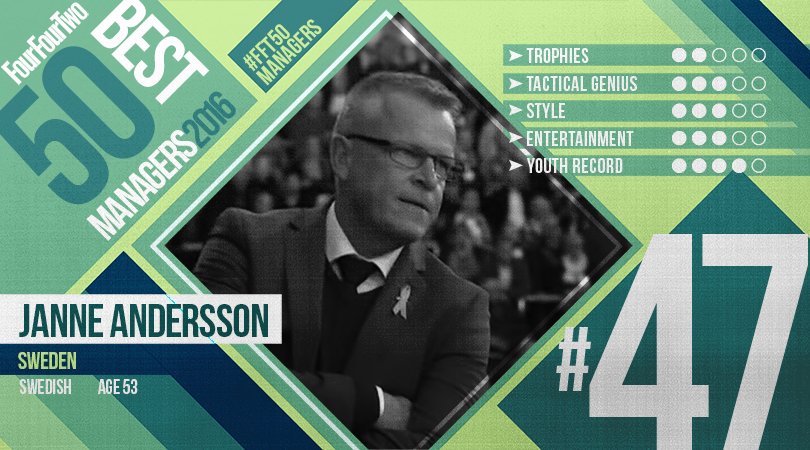
Patience and hard work pay off – Andersson knows that better than anyone. His appointment at IFK Norrkoping in 2011 was met with scepticism by fans and media, and the team was nearly relegated, but the club had faith and gave him full responsibility by making him both the coach and manager.
‘Party-Janne’ – a nickname he got after a late-night meeting with an agent before an IFK Norrköping game – comes into a completely deserted ballroom with Sweden. Without Zlatan
Andersson's long-term project was based on promoting youngsters from the local academy, and he was mightily successful with most of them, especially Christoffer Nyman and Alexander Fransson. Some of his choices were brilliant, like the decision to move captain Andreas Johansson from midfield into central defence.
By 2015, Norrkoping were ready to launch a sensational title bid, and were strong enough mentally and tactically to overcome all challenges. The championship triumph was the first for the club since 1989, and the 52-year-old finally got the recognition he deserved.
It’s why he was chosen to replace Erik Hamren as the national team coach after Euro 2016, as Norrkoping reluctantly let him go. Sweden will need to rebuild from scratch following the retirements of Zlatan Ibrahimovic, Kim Kallstrom and Andreas Isaksson, but that is exactly what Andresson is good at. This is his golden opportunity to prove himself on the international stage as well. MY
46. Kurban Berdyev (FC Rostov)

Not a name that embroiders the memoirs of football folklore, past or present, but Berdyev is thoroughly deserving of his place in this year’s list of the globe’s top managers. FC Rostov have spent just two seasons outside Russia’s Premier League, but they have never toppled the perennial giants of Russian football. In fact, a top-five placing had remained persistently beyond reach.
Berdyev's style is rarely spectacular, but one never expects Rostov to play like Barcelona, or even Leicester for that matter. They just stick to what brings them points
Rostov turned to Berdyev two years ago. His first season was a near catastrophe: goal difference saved the club from relegation. The board’s faith in Berdyev was repaid this time round as Rostov finished runners-up to Leonid Slutsky’s CSKA Moscow, just two points behind.
The 63-year-old transformed a leaky defence to concede the fewest goals in the championship, and their Olimp-2 stadium became their stronghold as every visitor failed to come away with victory. Even CSKA and Zenit St Petersburg felt the unexpected force of defeat at a stadium they usually thrive in.
Such a dramatic turnaround in fortunes from relegation escapees to title contenders inevitably springs to mind comparisons with Leicester. But Berdyev is no stranger to lifting the unlikeliest of clubs to title glory: he guided Rubin Kazan to their first ever Russian championship in 2008 and repeated the feat in even more unexpected circumstances the following season. In fact, Kazan also beat Barcelona in October 2009 at Camp Nou – another notable Berdyev achievement. GB
50-46 • 45-41 • 40-36 • 35-31 • 30-26 • 25-21
FourFourTwo's 50 Best Football Managers in the World 2016
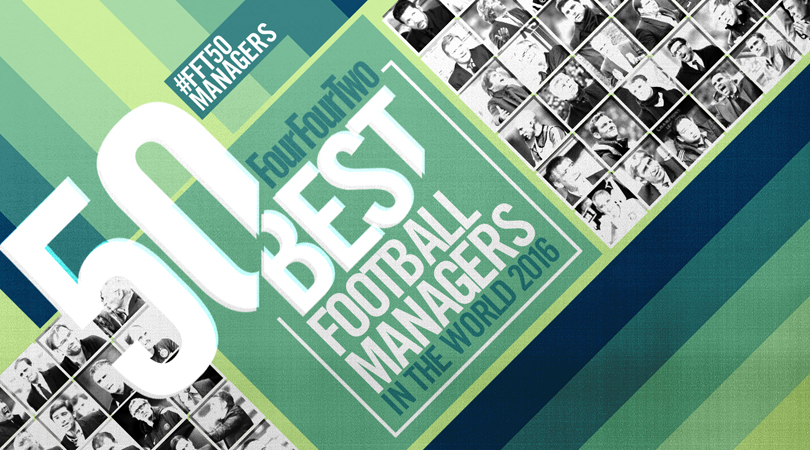
Joe was the Deputy Editor at FourFourTwo until 2022, having risen through the FFT academy and been on the brand since 2013 in various capacities.
By weekend and frustrating midweek night he is a Leicester City fan, and in 2020 co-wrote the autobiography of former Foxes winger Matt Piper – subsequently listed for both the Telegraph and William Hill Sports Book of the Year awards.
